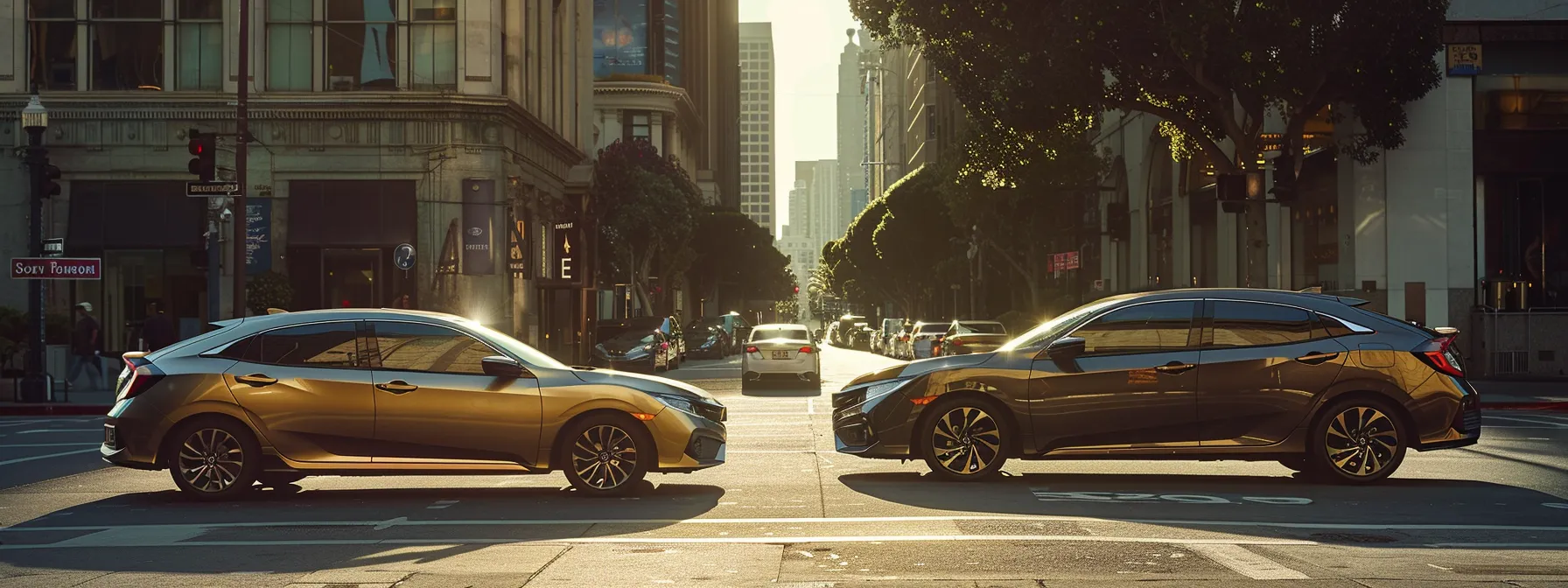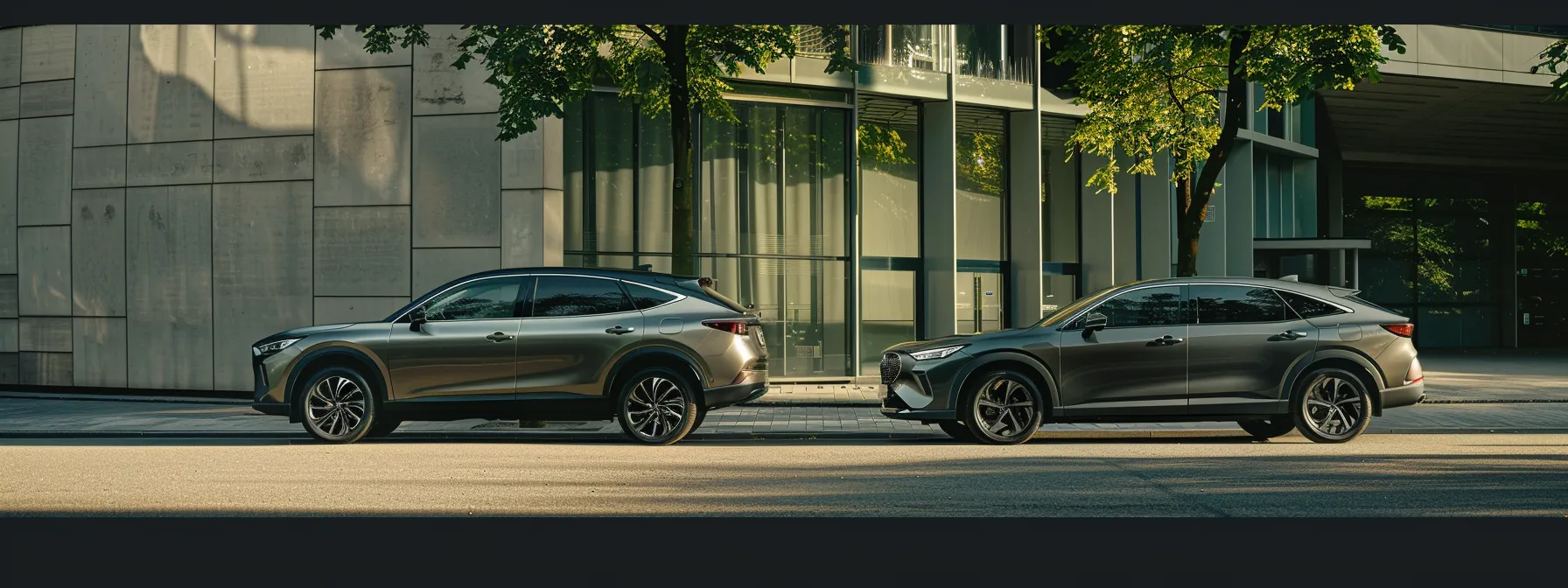Car Financing Myths: What You Need to Ignore
Car financing myths can cloud your judgment when shopping for vehicles in our inventory, whether you’re eyeing cars or trucks. These misconceptions might deter you from exploring favorable car loan options or considering the possibility to trade your vehicle for a newer model. Understanding the truth behind these myths empowers you to make informed decisions about your next automotive purchase. Keep reading to uncover the reality behind common car financing myths and gain valuable insights for your next vehicle acquisition.
Busting the Myth: Perfect Credit Score Not Needed
Many car buyers hesitate to explore financing options, believing they need a flawless credit score to secure a loan for their dream vehicle, whether it’s sleek cars, spacious vans, versatile suvs, or compact hatchbacks. This misconception often leads to missed opportunities. In reality, lenders employ a more comprehensive approach to assess risk, considering factors beyond just credit scores. Understanding how lenders evaluate loan applications and knowing the diverse financing options available for various credit histories can significantly improve your chances of driving home in your desired car, regardless of your credit situation. You can also trade your vehicle for an upgrade from our inventory of trucks.
Explaining How Lenders Assess Risk Beyond Scores
Lenders evaluate your loan application holistically, considering factors beyond your credit score. They examine your income stability, debt-to-income ratio, employment history, and assets to gauge your ability to repay the loan. Your recent credit behavior, such as timely payments and responsible credit utilization, can also positively influence their decision, even if your overall credit score isn’t perfect. Lenders may even consider the option to trade your vehicle as an inventory to repay the loan cars.
Highlighting Car Financing Options for Varied Credit Histories
You’ll find various financing options tailored to different credit profiles when shopping for cars. These include traditional bank loans, credit union financing, dealership financing, and subprime lenders specializing in loans for those with less-than-perfect credit inventory. Each option comes with its own set of terms, interest rates, and requirements, allowing you to choose the best fit for your financial situation.
Debunking the Down Payment Myths in Car Financing
When exploring car financing options, you’ll encounter various myths about inventory down payments that can cloud your judgment. These misconceptions often lead to unnecessary financial stress or missed opportunities. By understanding zero down payment options and how different down payment amounts affect your monthly installments, you can make more informed decisions about your car purchase. Let’s examine these aspects to help you navigate the complexities of car financing with confidence.
Understanding Zero Down Payment Options
You’ll find that zero down payment options exist for car financing, contrary to popular belief. These inventory arrangements allow you to trade your vehicle off the lot without an upfront cash outlay, making cars ownership more accessible. However, be aware that zero down payment loans often come with higher interest rates and longer loan terms, which can increase the overall cost of your trucks over time.
Evaluating How Down Payments Affect Monthly Installments
Your down payment amount directly impacts your trade your vehicle cars inventory payments. A larger down payment reduces the principal loan amount, resulting in lower monthly installments and potentially better interest rates. Conversely, a smaller down payment means higher monthly payments but allows you to keep more cash on hand for other expenses or investments.
The Truth About Car Loan Interest Rates Unveiled
car loan interest rates often mystify buyers, but understanding their nuances can save you money and headaches. Lenders consider cars inventory factors beyond your credit score when setting your rate, and the type of loan you choose – fixed or variable – can significantly impact your long-term costs. By demystifying these aspects, you’ll be better equipped to negotiate favorable terms and select the most suitable financing option for your circumstances.
How Your Interest Rate Is Determined by More Than Just Credit Score
Your car loan interest rate hinges on multiple factors beyond your credit score. Lenders assess your inventory ratio, trade your vehicle stability, and loan term when determining your rate. The type of cars, trucks you’re financing, whether new or used, also plays a role in the interest rate you’re offered.
Comparing Fixed-Rate vs. Variable-Rate Loans
You’ll encounter two primary types of car loans: fixed-rate and variable-rate. Fixed-rate loans maintain the same interest rate throughout the loan term, providing predictable monthly payments and protection against market fluctuations. Variable-rate cars loans, on the other hand, offer initially lower rates that can change over time based on market conditions, potentially resulting in lower overall costs if rates remain favorable but carrying the risk of increased payments if rates rise.
Long-Term Loans Are Not Always a Bad Idea
You’ve likely heard that long-term car loans are a financial trap, but this blanket statement doesn’t always hold true. While shorter loan terms generally result in lower overall costs, longer-term cars loans can offer advantages in certain situations. Understanding when extended loan periods might benefit you can help you make a more informed decision about your car financing inventory options. Let’s explore scenarios where opting for a longer loan term could work in your favor, allowing you to balance your budget while still achieving your car ownership goals.
When Longer Loan Terms Can Work in Your Favor
Longer loan terms can be advantageous in specific situations, particularly when you prioritize lower monthly payments. You might opt for an extended loan period if you’re confident in your ability to make consistent payments over time, but need more flexibility in your monthly budget. This approach can allow you to purchase a higher-quality cars from inventory that better suits your needs or preferences, without straining your immediate financial resources trade your vehicle.
Huge Misconception About Leasing vs. Buying a Car Deconstructed
You may have heard that leasing a car is always more expensive than buy cars. This common misconception overlooks the fact that leasing can be financially advantageous in certain situations. Your decision between leasing and buying should depend on your specific needs, lifestyle, and financial goals. If you want to trade your vehicle for a different one, leasing trucks from inventory could be a better option.
You’ll find that leasing often provides lower monthly payments and allows you to trade your vehicle for a newer cars every few years. This option can be particularly appealing if you value having the latest technology and safety features in your car inventory. However, you need to consider mileage restrictions and potential wear-and-tear charges associated with leasing.
You should weigh the long-term costs and benefits of both cars and trucks options from inventory before making a decision. Buying a car gives you ownership and the ability to build equity, but it also means higher monthly payments and responsibility for maintenance as the vehicle ages. Your choice ultimately depends on your personal preferences and financial situation. Trade your vehicle.
Conclusion
Car financing myths can hinder your vehicle purchase journey, but understanding the truth empowers you to make informed decisions. Lenders consider more than just credit scores, offering diverse financing options for various credit profiles. Down payments, interest rates, and loan terms impact your overall costs, so evaluating these factors carefully helps you secure the best deal. By dispelling common misconceptions about leasing versus buying and long-term loans, you can choose the most suitable financing option for your unique circumstances and drive away in your desired vehicle with confidence.
Recent Posts

Honda Civic vs Toyota Corolla: Ultimate MPG Comparison
Are you trying to decide between the Honda Civic and Toyota Corolla for your next car? Both models are known for their reliability and fuel efficiency, but which one truly offers better miles per gallon (MPG)? In this comparison, I’ll break down the official MPG ratings, real-world performance, and the engineering behind their fuel efficiency. [...]

SUV vs Sedan: Analyzing Depreciation Rates Comparison
When choosing a men’s wedding ring, many people overlook titanium, assuming it lacks the elegance of platinum or gold. However, titanium men's rings offer unmatched durability, lightweight comfort, and a modern aesthetic that aligns with today’s wedding ring trends. In this article, you will discover the benefits of titanium wedding bands, including their hypoallergenic properties [...]

Guide to Successful Bad Credit Auto Financing
Are you struggling to finance your car due to bad credit? You're not alone. Many people face challenges when seeking auto financing, but there are options available. In this guide, I will cover how to understand your credit score, explore bad credit auto financing options, and navigate the application process successfully. By the end, you'll [...]
Find the car you need.
At Indy Auto, we are committed to providing you with the best solutions tailored to your driving needs. Whether you’re navigating city streets or cruising down the highway, our dedicated team ensures that you have access to top-quality vehicles, parts, and services that enhance your driving experience.
